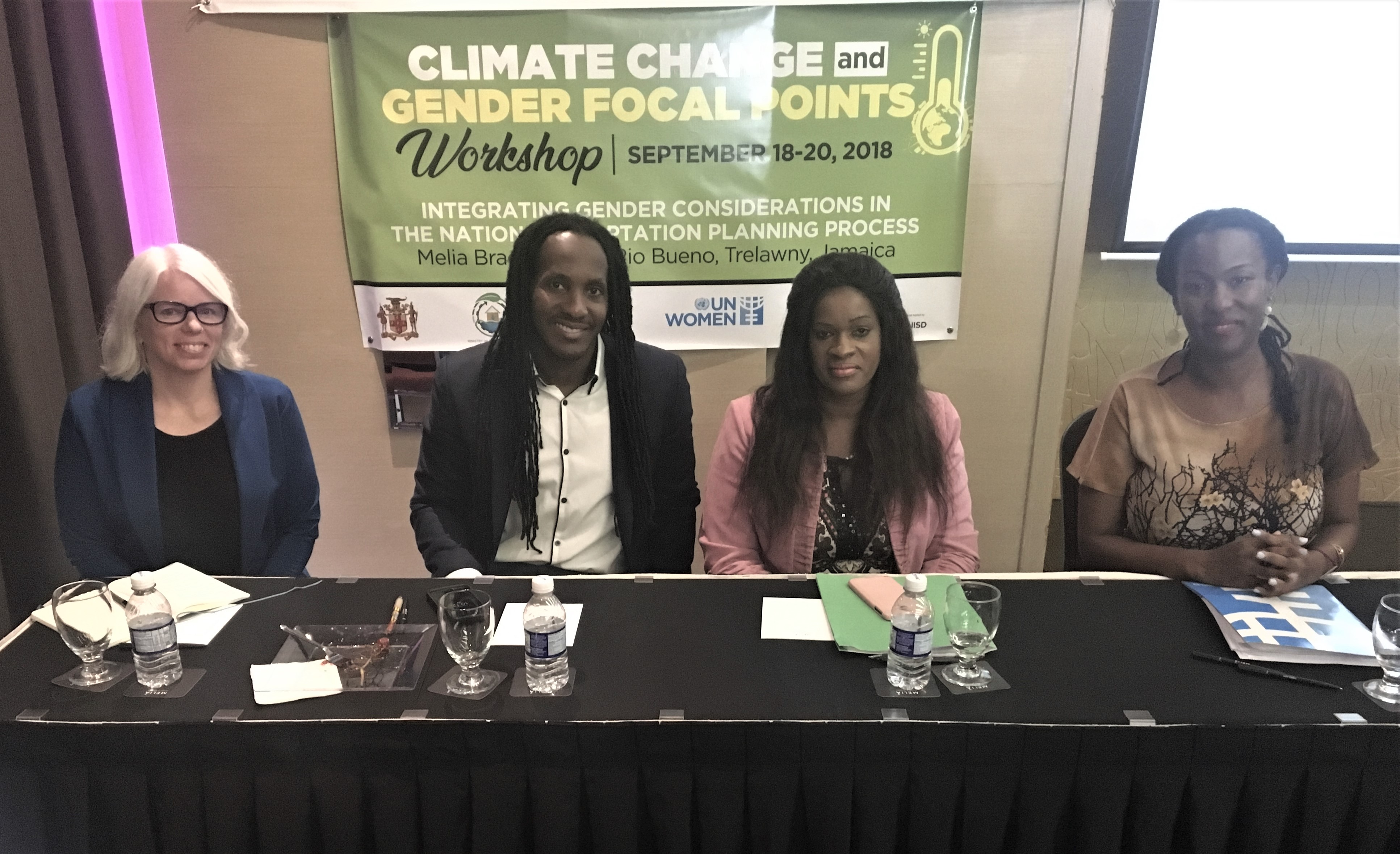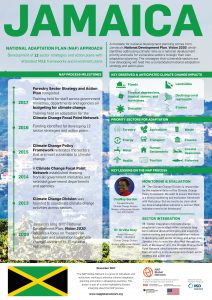 RIO BUENO, JAMAICA – This week, more than 30 specialists from the Caribbean will meet in Jamaica for the first time to discuss two very important topics – gender equality and climate change adaptation planning – and how they intersect.
RIO BUENO, JAMAICA – This week, more than 30 specialists from the Caribbean will meet in Jamaica for the first time to discuss two very important topics – gender equality and climate change adaptation planning – and how they intersect.
This two-and-a-half-day workshop will be co-hosted by the Government of Jamaica, Climate Change Division (CCD), UN Women, and the National Adaptation Plan (NAP) Global Network, from September 18th-20th. Representatives will work together to identify critical next steps for how to integrate gender considerations into national adaptation plans and policymaking.
“We are bringing these two teams together – the gender specialists and the climate change focal points – because we need a common understanding of these issues and how they relate,” said Ms. Una May Gordon, Principal Director of Jamaica’s Climate Change Division. “We will discuss our shared challenges and opportunities with the goal of incorporating our findings into Jamaica’s National Adaptation Plan process.”
In addition to Jamaica, gender and climate change focal points will also be present from Saint Lucia and Antigua and Barbuda.

As countries – both in the Caribbean and around the world – respond to the impacts of climate change, the question of who participates in and benefits from decision-making processes becomes increasingly important. Addressing gender inequality is a critical issue to ensure the effectiveness of climate change adaptation processes, as well as for achieving the Sustainable Development Goals.
UN Women Deputy Representative Tonni Brodber welcomes the opportunity to collaborate with the Government of Jamaica and the NAP Global Network on this initiative. “Too often gender is not seen as a core development priority or critical to the success of climate change adaptation,” she said. “The Sustainable Development Goals highlight gender as a key priority, and we hope that by using a gender lens in adaptation planning we can assess the different needs of women, men, girls, and boys to unlock their fullest potential.”
The NAP process, in which countries develop policies and responses to adapt to climate change will be an essential opportunity to apply this gender lens and actively address gender inequalities, in the participating countries and beyond.
Throughout this collaborative and engaging workshop, participants will forge partnerships across ministries, gain a shared understanding of gender and climate change issues, and develop concrete next steps to address gender inequalities exacerbated by climate change impacts.
Media Contacts:
Sharon Carter-Burke
Communications Analyst, UN Women Multi-Country Office – Caribbean
Email: Sharon.carter-burke@unwomen.org
Tel: +1 246 467 6000 ext. 6124
Clare Church
Research Officer, NAP Global Network
International Institute for Sustainable Development
Email: cchurch@iisd.ca
About UN WOMEN
UN Women is the UN organization dedicated to gender equality and the empowerment of women. A global champion for women and girls, UN Women was established to accelerate progress on meeting their needs worldwide. UN Women supports UN Member States as they set global standards for achieving gender equality, and works with governments and civil society to design laws, policies, programmes and services needed to implement these standards.
About the NAP Global Network
The NAP Global Network was created in 2014 to enhance support for national adaptation planning and action through sustained peer learning and exchange, enhancing bilateral support, and promoting national-level action on NAP development and implementation. The Network’s members include participants from more than 60 countries involved in developing and implementing national adaptation plans, as well as 11 bilateral donors. Initial funding for the Network is provided by the United States and Germany. The Secretariat is hosted by the International Institute for Sustainable Development (IISD).